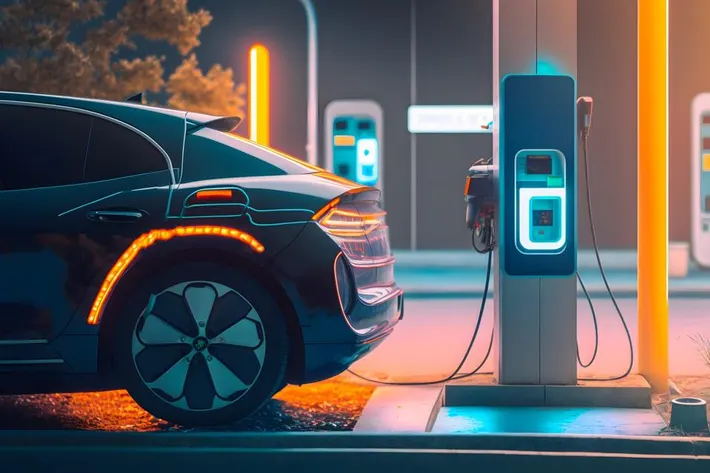In the vast landscape of automotive technology, a profound shift is underway—one that is reshaping the very foundations of transportation as we know it. The gears of change are turning, and the engine driving this transformation is electric. The automotive future is unmistakably electric, and in this blog, we’ll delve into the myriad reasons why.

1. Environmental Imperative:
At the forefront of the shift to electric vehicles (EVs) is a growing awareness of our environmental footprint. Traditional internal combustion engines, reliant on fossil fuels, have long been a significant contributor to air pollution and climate change. The urgent need to reduce greenhouse gas emissions and combat climate change has propelled the automotive industry towards cleaner alternatives. Electric vehicles, powered by electricity often sourced from renewable energy, stand as a beacon of hope in the quest for a sustainable and eco-friendly mode of transportation.
2. Advancements in Battery Technology:
The linchpin of electric vehicles lies in their battery technology. Over the years, there have been remarkable strides in battery efficiency, energy density, and cost reduction. Lithium-ion batteries, the current standard, continue to evolve, with ongoing research into alternative materials promising even greater advancements. As these batteries become more affordable and capable of holding larger amounts of energy, the range anxiety associated with early electric vehicles is gradually fading away. The rapid development of solid-state batteries and other innovations suggests a future where charging will be faster, and the driving range will be comparable, if not superior, to conventional vehicles.
3. Economic Viability:
Contrary to the notion that electric vehicles are a luxury for the elite, the economics of EVs are becoming increasingly favorable. Governments around the world are offering incentives and subsidies to encourage the adoption of electric vehicles. As production scales up and technology matures, the cost of manufacturing EVs is steadily decreasing. Additionally, the lower operational costs of electric vehicles, owing to fewer moving parts and decreased reliance on expensive fuels, make them an attractive proposition for consumers. It’s not just a green choice; it’s becoming a financially savvy one too.
4. Technological Advancements:
The automotive landscape is evolving into a digital frontier, and electric vehicles are at the forefront of this technological revolution. Electric cars are not just transportation devices; they are smart, connected platforms on wheels. With advancements in autonomous driving, over-the-air updates, and integration with smart infrastructure, electric vehicles offer a glimpse into the future of transportation. The convergence of electric propulsion and cutting-edge technology is creating a driving experience that is safer, more convenient, and seamlessly integrated into our digital lives.
5. Global Commitments and Regulations:
Nations worldwide are setting ambitious targets to reduce carbon emissions and combat climate change. Many governments have announced plans to phase out internal combustion engine vehicles and promote the adoption of electric vehicles. These commitments are not only environmental but also strategic, as countries recognize the economic and geopolitical advantages of leading the electric revolution. As regulatory frameworks evolve, the automotive industry is compelled to align with these global goals, further accelerating the transition to electric mobility.
6. Infrastructure Development:
One of the challenges initially faced by electric vehicles was the lack of charging infrastructure. However, this scenario is rapidly changing. Governments, private companies, and communities are investing in the development of a robust charging network. Fast-charging stations are becoming more prevalent, and innovations like wireless charging are on the horizon. As the infrastructure catches up with the demand, concerns about charging accessibility are diminishing, making electric vehicles a practical choice for a broader audience.
7. Corporate Leadership and Innovation:
Major automotive manufacturers are recognizing the inevitability of an electric future. Industry leaders are investing heavily in research and development to stay ahead of the curve. Electric vehicle startups are also entering the scene, injecting innovation and competition into the market. This competitive landscape is fostering a culture of continuous improvement and innovation, driving the evolution of electric vehicles at an unprecedented pace.
In conclusion, the automotive future is unequivocally electric. The confluence of environmental consciousness, technological advancements, economic viability, and global imperatives is propelling electric vehicles into the mainstream. As we witness the phasing out of traditional combustion engines, we are not just embracing a new era of transportation but steering towards a sustainable and interconnected future—one where the roads are electrified, and the journey is powered by innovation. The wheels are in motion, and the electric revolution is set to redefine the way we move, drive, and experience the world.





